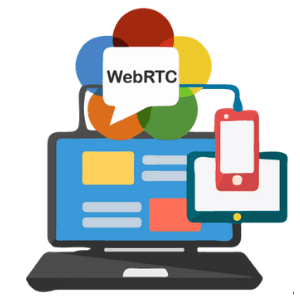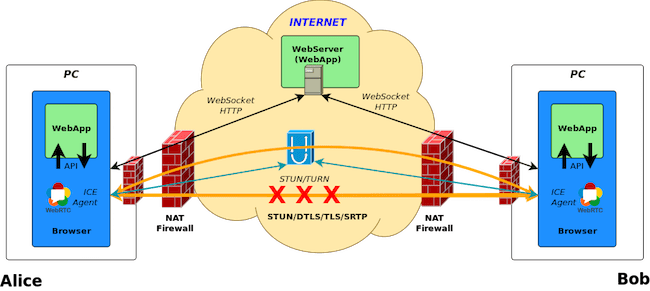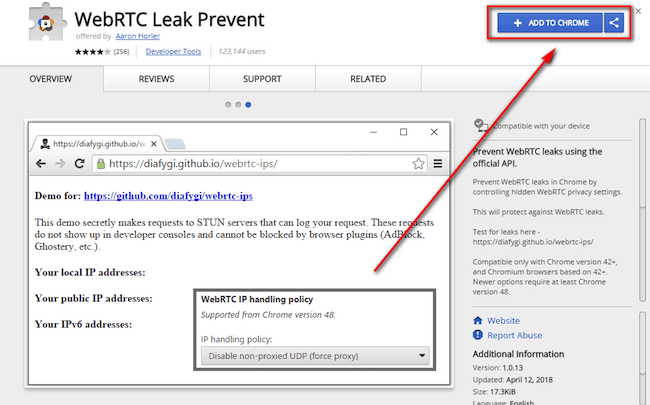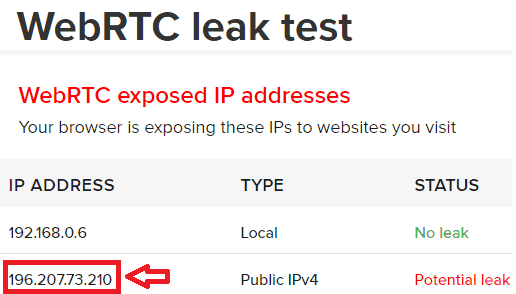Disclosure: Privacy Australia is community-supported. We may earn a commission when you buy a VPN through one of our links. Learn more.
How to Stop Web RTC Leak (Free & Easy Fixes)

WebRTC leaks are embarrasing when you’re out and about. If you use the Chrome browser, you are at risk. Here’s what to do. ‘Nuff said.
In some cases, using a great virtual private network (VPN) is not enough to secure your data transmissions and ensure that your IP address is kept anonymous.
WebRTC leaking is an issue that affects the Google Chrome browser and may result in your true IP address being made available online.
WebRTC stands for Web Real Time Communication. It’s used by many websites and web applications to keep a constant session stream open between a user’s computer and the host server.
WebRTC will use a secure sockets layer (SSL) connection as long as the host server has a valid certificate, but that is still not enough to prevent the leaking of your IP address.
When websites or third parties are able to obtain your local IP address, it gives them the ability to track your online activity and even your physical location.
All IP addresses are linked to geographic areas, so your local network and internet company assigns them based on the city and region where you live or work.
How Do Leaks Occur?
The central issue with WebRTC leaks was first uncovered in 2015. Programmers discovered that when the Chrome browser was connected to a website through a VPN connection, it would make periodic requests through a system known as Session Traversal Utilities for NAT (STUN).
STUN requests are required to support any sort of real-time communication or collaboration within a browser window.

The problem is that each STUN requests talks between the user’s computer and the outside internet, and in those cases it will use your local IP address, not the address provided by your VPN service.
This means that the address from your internet service provider (ISP) or wi-fi network will be accessible to outside parties. In fact, websites could use JavaScript code to easily capture your true IP address through a force STUN request.
Preventing Leaks With Chrome Extensions
Switching to a different VPN client or host will not help to prevent WebRTC links. The issue affects all VPN services, regardless of what encryption protocol they use.
Instead, the best approach to take is to install a Chrome extension, which is a small utility that gets added to help form a quality secure browser experience. Chrome has an entire store of extensions, many of which can be obtained for free.
Google has actually written and published an entire application programming interface (API) for the WebRTC issue. This has allowed individual developers to create their own Chrome extensions to get around the problem with VPN clients.
One of the most popular Chrome extensions for this purpose is WebRTC Leak Prevent. It is compatible with any version of Chrome higher than 42.
Upon installation, the extension’s options window will appear, and you will be able to choose whether you want to protect WebRTC leaks or not.

The WebRTC Protect extension works in a similar way. It adds a button to the upper-right corner of your Chrome browser, and with a single click you can turn the WebRTC protection on or off. When the icon is colored blue, that means the protection is enabled and your VPN service will not leak your true IP address on any website.
Depending on what VPN service you use, your provider may recommend a specific Chrome Extension or may actually offer one of their own. Visit their website to get more information. But keep in mind that any extension that utilizes the official Google API will operate the same way.
Testing for WebRTC Leaks
After installing a Google Chrome extension to protect yourself from WebRTC leaks, you should use an online utility to make sure everything is working as designed.
Make sure the Chrome extension you choose to install is offered by a reputable developer and has a substantial number of positive reviews.

There could be dangerous solutions offered on third party websites that are not genuine and will actually try to infect your computer. You should only ever install Chrome extensions from the official Google store.
An easy test for WebRTC leaks is available from the What Is My IP? website. When you load that page, it will indicate whether your IP address has been revealed or hidden. Underneath that message, you’ll see how your local IP address differs from the public IP address that other website can see.
With a strong VPN like NordVPN or Surfshark and WebRTC leak protection, your local IP address should always remain private so that you can protect your identity and personal information.
You May Also Like:



